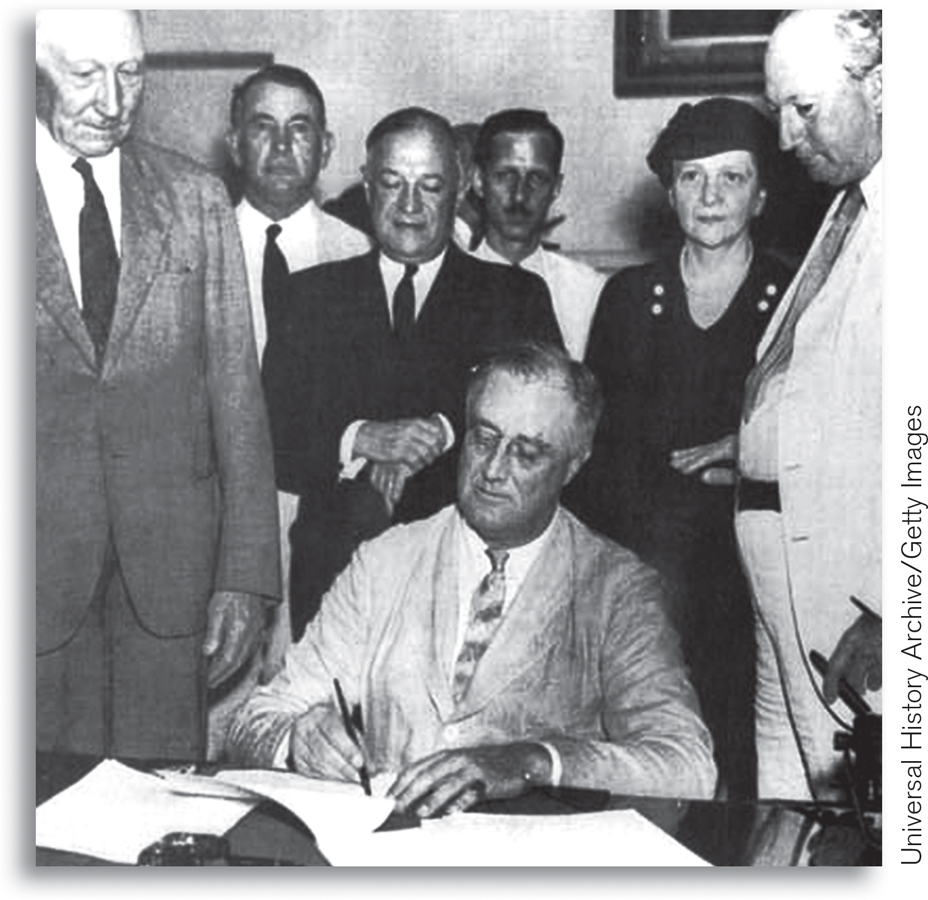Social Security and Unemployment Insurance
Social Security, the largest program in the U.S. welfare state, is a non-
Social Security is supported by a dedicated tax on wages: the Social Security portion of the payroll tax, which was described in Chapter 7, pays for Social Security benefits. The benefits workers receive on retirement depend on their taxable earnings during their working years: the more you earn up to the maximum amount subject to Social Security taxes ($113,700 in 2013), the more you receive in retirement. Benefits are not, however, strictly proportional to earnings. Instead, they’re determined by a formula that gives high earners more than low earners, but with a sliding scale that makes the program relatively more generous for low earners.

Because most seniors don’t receive pensions from their former employers and most don’t own enough assets to provide them with a living, Social Security benefits are an enormously important source of income for them. Fully 60% of Americans 65 and older rely on Social Security for more than half their income, and 20% have no income at all except for Social Security.
Unemployment insurance, although normally a much smaller amount of government transfers than Social Security, is another key social insurance program. It provides workers who lose their jobs with about 35% of their previous salary until they find a new job or until 26 weeks have passed. (Benefits were temporarily extended in response to the severe recession of 2007–